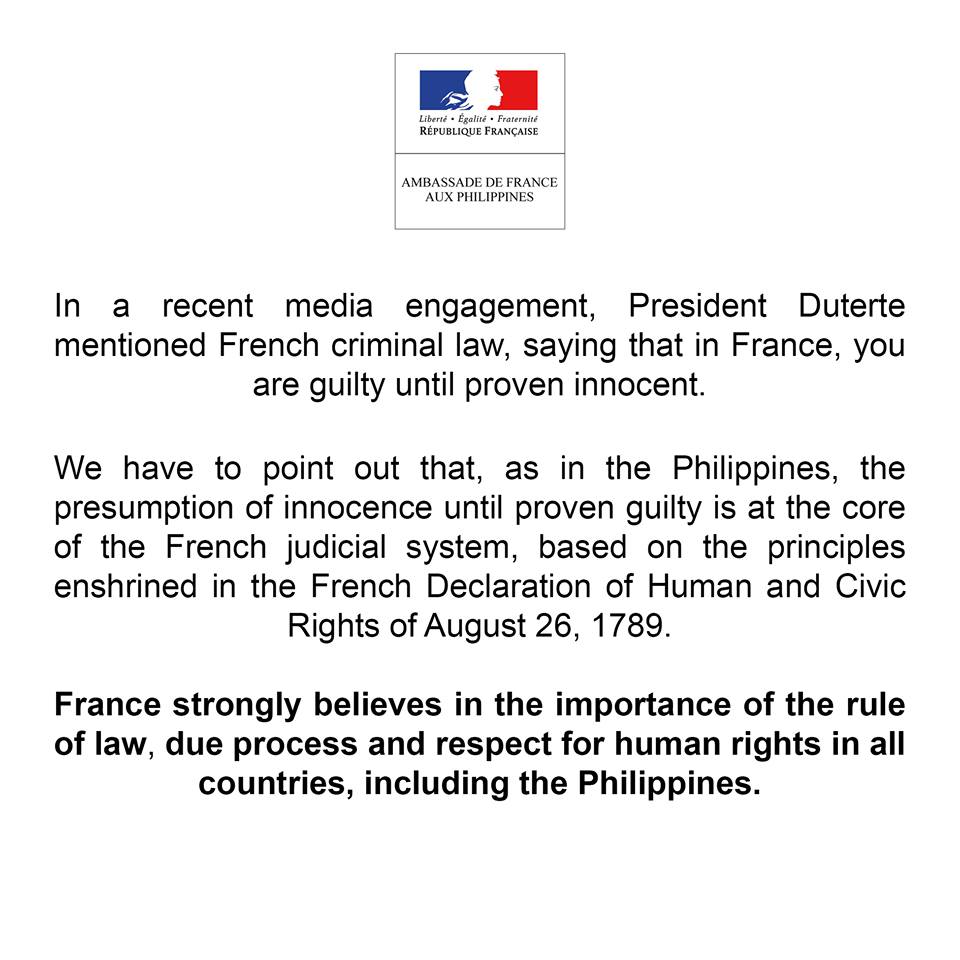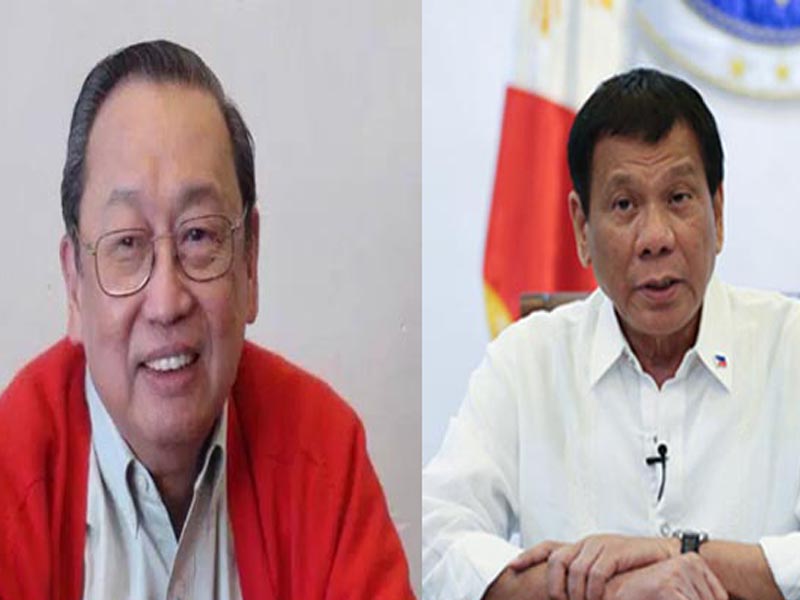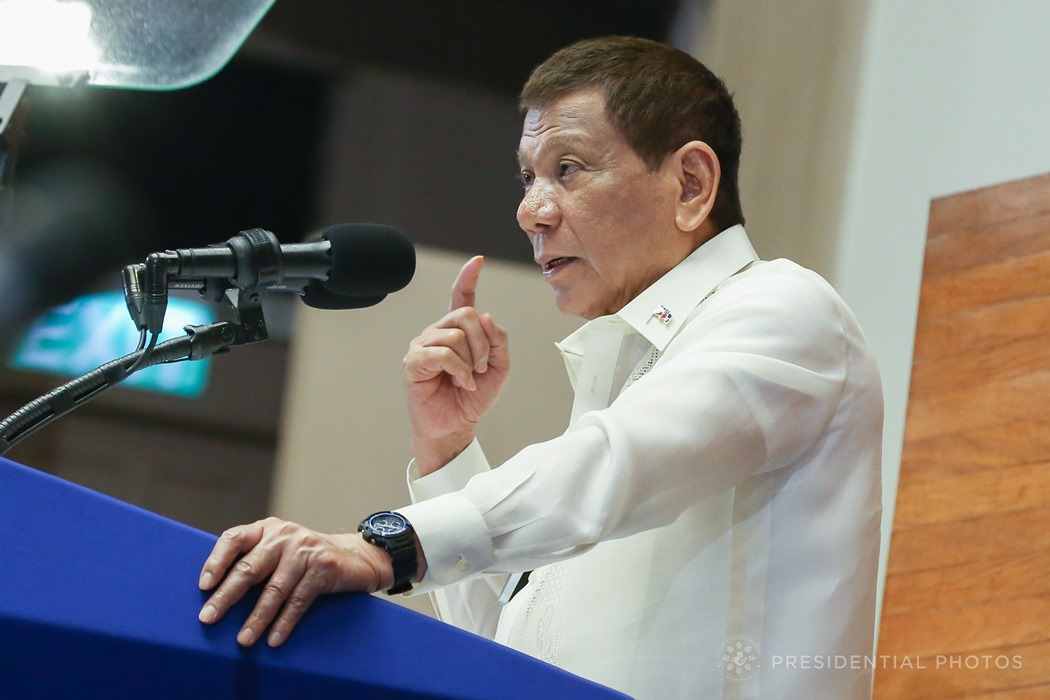The French embassy in Manila pointed out Wednesday that just like in the Philippines, presumption of innocence until proven guilty lies at the core of the French judicial system.
The three-paragraph statement published on its website refutes President Rodrigo Duterte’s claim on Monday that in France, a person allegedly involved in a crime is guilty until proven innocent.
Reacting to United Nations Special Rapporteur Agnes Callamard’s tweet for the Philippines to investigate all “unlawful deaths” and “stop all the murderers” in the war on drugs, Duterte said in an interview in San Fernando, Pampanga that Callamard, a French national, should go back to her country. He then said:
Sa kanila (In their country), they can detain a person almost indefinitely, under the French law. And the French law says you are guilty, and you have to prove your innocence. Ganun ‘yan, presumption dito, inosente ka (That’s like that, here, you have presumption of innocence.)
Source: Media interview with President Rodrigo Duterte, San Fernando, Pampanga, August 28, 2017, watch from 15:03 to 16:01
Presumption of innocence is at the core of the criminal justice system in both the Philippines and France.
What does presumption of innocence mean?
In the Philippines, presumption of innocence is a right guaranteed by the 1987 Constitution.
Article III, Sec. 14 (2) states that in all criminal prosecutions, the accused is presumed innocent until proven guilty beyond reasonable doubt.
Supreme Court Chief Justice Maria Lourdes Sereno, in her separate concurring opinion on the Vizconde massacre, wrote, “In pronouncing the presumption of innocence of the accused and their right to due process, the Constitution declares that the risk of letting the guilty walk free would be error on the side of justice. This outcome is infinitely better than imprisoning an innocent person.”
Sources:
Statement of the Embassy of France to the Philippines
G.R. No. 176389 and G.R. NO. 176864
(Guided by the code of principles of the International Fact-Checking Network at Poynter, VERA Files tracks the false claims, flip-flops, misleading statements of public officials and figures, and debunks them with factual evidence. Find out more about this initiative.)





